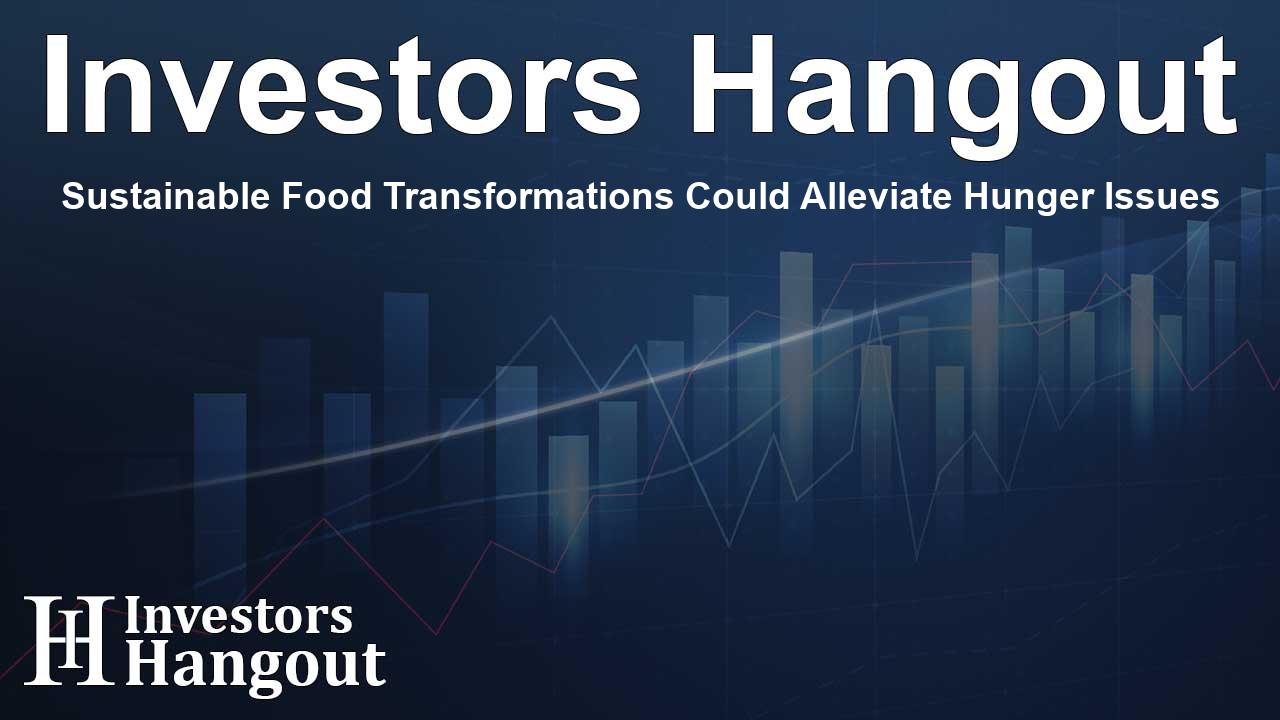Sustainable Food Transformations Could Alleviate Hunger Issues

Deloitte's Insights on Global Food Sustainability
Deloitte recently released an enlightening report discussing the significant potential of transforming the global food system to address undernourishment and enhance economic growth. By implementing sustainable practices, it is projected that around 300 million individuals could be lifted out of hunger as part of a comprehensive climate action strategy.
Key Economic Impacts
The findings reveal a potential economic growth of $121 trillion by the year 2070, provided that climate-related challenges are handled effectively. A sustainable transformation of the food system could lead to a staggering 16% decrease in global food prices, a vital step in improving food security for all. Inaction, however, poses serious risks, potentially costing the global economy approximately $190 trillion due to factors such as diminished agricultural productivity and possible losses in labor effectiveness.
The Role of Sustainable Practices
The report highlights that to achieve sustainable feeding practices by 2070, it is crucial to limit global warming to below 2°C while aiming to increase calorie output by 40% to accommodate an expected global population of around 10 billion. Meeting the nutritional needs of an additional 1.6 billion people hinges on transformational changes in the food system.
Environmental Challenges Ahead
The research also illustrates the daunting threats posed by climate change, with potential damages to the economy projected to reach $190 trillion from 2025 to 2070 if current practices remain unchanged. Critical food production sectors might lose approximately $13 trillion in value, which would send ripples through the entire food supply chain and diminish the value of food services and manufacturing sectors.
The Role of Global Leadership
According to Jennifer Steinmann, a leading voice at Deloitte on sustainability issues, this period is crucial for global leaders. Acknowledging the immense cost of inaction on climate change can motivate collective efforts towards a sustainable food system—a pursuit that can uplift many from malnourishment and simultaneously enhance resource conservation and economic vitality.
A Call to Action for Food Systems Transformation
Deloitte's report emphasizes that successful interventions will require systemic transformations that confront disparities in food consumption, enhance resilience to climate influences, and advocate for net-zero policies. The document outlines five critical solutions aimed at achieving this transformation. These include advancing technological innovations in agriculture, safeguarding natural resources, mitigating global emissions, promoting sustainable consumer preferences, and ensuring food circularity to minimize waste.
Building a Sustainable Future
Dr. Pradeep Philip highlights that the traditional methods of increasing food production are no longer sustainable. It's essential to move from the status quo to innovative approaches that can effectively diminish hunger and stabilize food prices. The collaboration across diverse sectors must pivot towards nurturing eco-friendly practices and relentless commitment to a sustainable, equitable food future.
Frequently Asked Questions
What are the main findings of Deloitte's report?
Deloitte's report indicates that sustainable food system transformations could lift around 300 million people out of undernourishment and generate economic growth of $121 trillion by 2070.
What is the impact of climate change on food security?
Unchecked climate change could devastate global economies, potentially costing $190 trillion and diminishing agricultural productivity significantly.
How can sustainable practices improve food prices?
By transforming food systems sustainably, global food prices could drop by 16%, making nutritious food more accessible to those in need.
What strategies does the report propose?
The report suggests five strategies: encouraging innovation, protecting natural resources, reducing emissions, promoting sustainable diets, and enhancing food circularity to cut waste.
Why is a systemic transformation needed in food production?
A systemic transformation is essential to address disparities in food consumption, strengthen adaptation to climate effects, and achieve a net-zero future.
About Investors Hangout
Investors Hangout is a leading online stock forum for financial discussion and learning, offering a wide range of free tools and resources. It draws in traders of all levels, who exchange market knowledge, investigate trading tactics, and keep an eye on industry developments in real time. Featuring financial articles, stock message boards, quotes, charts, company profiles, and live news updates. Through cooperative learning and a wealth of informational resources, it helps users from novices creating their first portfolios to experts honing their techniques. Join Investors Hangout today: https://investorshangout.com/
Disclaimer: The content of this article is solely for general informational purposes only; it does not represent legal, financial, or investment advice. Investors Hangout does not offer financial advice; the author is not a licensed financial advisor. Consult a qualified advisor before making any financial or investment decisions based on this article. The author's interpretation of publicly available data shapes the opinions presented here; as a result, they should not be taken as advice to purchase, sell, or hold any securities mentioned or any other investments. The author does not guarantee the accuracy, completeness, or timeliness of any material, providing it "as is." Information and market conditions may change; past performance is not indicative of future outcomes. If any of the material offered here is inaccurate, please contact us for corrections.